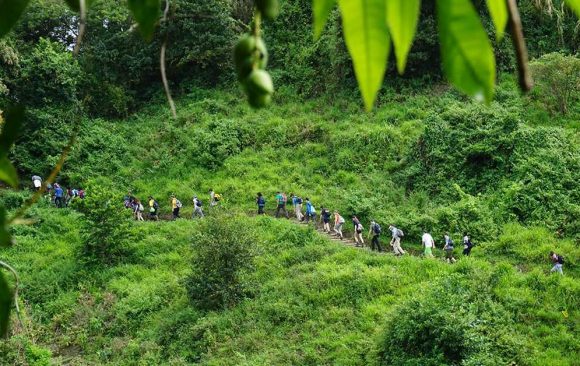As a result of environmental degradation, with the idea that the future of tourism is in danger, alternative tourism types have emerged in the tourism sector.
In order to ensure the sustainability of tourism, tourism types such as nature tourism, rural tourism and ecotourism, which are sustainable tourism types, have started to develop. The concept of ecotourism, based on environmental, cultural and economic development, is used in different ways in each sector. Tour operators see ecotourism as a marketing tool, environmental groups as activities that protect nature, economists as an element of employment, governments as an economic opportunity, and some local communities as a source of social life. Therefore, there is no clear international definition of ecotourism.
Defining “Ecotourism”
The concept of ecotourism, which developed in the 1990s as a reaction to mass tourism, which is thought to damage natural areas, carries rural and cultural elements and is the most appropriate type of tourism to be developed in these areas. According to the definition on Wikipedia, “Ecotourism is catering for tourists wishing to experience the natural environment without damaging it or disturbing its habitats. It is a form of tourism involving responsible travel to natural areas, conserving the environment, and improving the well-being of the local people. Its purpose may be to educate the traveler, to provide funds for ecological conservation, to directly benefit the economic development and political empowerment of local communities, or to foster respect for different cultures and for human rights.”
In May 2002, “World Ecotourism Summit” was held in Quebec, Canada, and 1100 delegates from 133 countries attended this summit. A common definition accepted by all countries has been established. According to this definition, ecotourism is an approach or an attitude that ensures the sustainability of the earth’s natural resources, and also supports the economic development of local people, while protecting their social and cultural integrity.
On the other hand, the International Ecotourism Association (TIES) defines ecotourism as “responsible travel to natural areas that conserves the environment, sustains the well-being of the local people, and involves interpretation and education”
(https://ecotourism.org/what-is-ecotourism/).
In order for a tourism activity to become an ecotourism activity, it must first be sensitive to the environment, ensure the development and improvement of the local economy with the participation of the public, and respect the local culture. The concept of ecotourism is a type of tourism that is based on nature, while also protecting it. It is the set of activities that prefer renewable resources and ensure the recycling of these resources.
“Eco-tourist” concept
With the development of the concept of ecotourism, the concept of ecotourist has also emerged. Eco-tourist is defined as “responsible tourist who prioritizes sustainability, authentic local expenditures and the opportunities they bring to the local people they visit” (https://ecotourism.org/).
According to tour operators, an ecotourist is a nature lover, a person with a sportive and adventurous spirit. S/he can do without luxury and has a team spirit. Typical ecotourists are people between the ages of 35-54, mostly university graduates, usually attending as a couple, traveling for 1-2 weeks and spending an average of 1500$.
An ecotourist is a nature lover and environmentally conscious person who participates in ecotourism activities. S/he is interested in the history of the region s/he has visited and is curious to learn. S/he contributes to the spreading of the local culture and is respectful to the customs of the region. S/he contributes economically to the local people. They are educated people with an environmental awareness. They love sports and adventure. They are interested in the flora and fauna of the region and have knowledge about ecology. Geological structure and natural resources are attractive to them. Ecotourists do not prefer mass tourism, they prevent the negative effects of tourism from harming nature and they take care to balance the protection and use.
According to these definitions, would you describe yourself as an ecotourist? ☺
Let me look at the purposes of ecotourism in my next blog post, maybe you can decide the answer of above question after that ☺
Until then,
Take care
